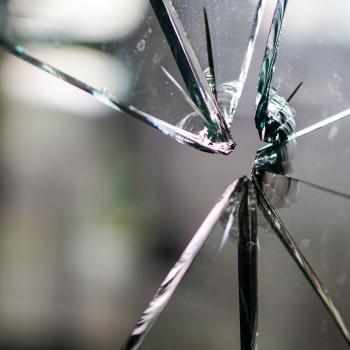She’s short. Maybe 5’2. But her voice, her Louisiana to the core drawl fills up a room. She likes her beer cold, and to spin stories so long they would make anyone’s grandma proud.
This is not a woman one easily imagines accompanying a convicted murder to death. She herself will be the first to tell you that she never could have imagined her life would look like this on that day in 1957 when she took her vows and entered the Congregation of St. Joseph, as it is now known.
This journey that would lead her to testify before congreess, to live among the urban poor, and to accompany five men to their state executions began in 1981 when Sr. Helen entered into the world of prision ministry.
While living amongst the poor in a New Orleans housing project, she met the mother of convicted killer Patrick Sonnier. At her request, Sr. Helen began to correspond with Sonnier. This pen pal would change the trajectory of her life.
She became Sonnier’s spiritual advisor, and when the time came, she accompanied him to, and witnessed his execution. She wrote of that experience in the bestselling work Dead Man Walking: An Eyewitness Account of the Death Penalty in America, which was turned into a film starting Susan Sarandon and Sean Penn. As a result of the experiences that she recounts in Dead Man Walking, Sr. Helen began a support group for murder victims family members. She realized that she reached out too late to the family of the victims of Patrick Sonnier, and they took her to task for it. Now, she recounts, she always reaches out to the family of the vicitms of those she is advising. They rarely want to engage with her, but she always offers spiritual support to them as well, leaving the invitation open.
In 2005, Sr. Helen published The Death of Innocents: An Eyewitness Account of Wrongful Execution in which she makes a very compelling case that two of the five men she accompanied to their death were in fact innocent of the crime for which they were killed. In the second part of the book, she takes on the Christian arguments in favor of the death penalty, and makes a strong argument that our government has executed innocent people.
The stories she profiles in Death of Innocents will make your heart ache. The first man, Dobie Gillis Williams, was mentally retarded, with an IQ of 65, well below the standard measure of 70. In fact, if Mr. Williams had been convicted in 2011 rather than 1985, he would have been ineligible for capital punishment, the Supreme Court of the US ruling recently that it is unconstitutional to execute those with mental retardation.
Sr. Helen takes on, in particular, the reasoning of Justice Anton Scalia, another well-known Catholic, and firm advocate of capital punishment. Scalia, in fact, is from Prejean’s home state of Louisiana and is good friends with her brother, Louis. There’s a feeling of the surreal when one reads of the exchange between them at the New Orleans airport which in some measure precipitated the book.
Perhaps because the argument from innocence is so much more compelling and attractive, even to someone like me, who is staunchly anti-death penalty, I found Death of Innocents to be the better of the two books, despite the national and international fame of Dead Man Walking. For sure, both are excellent, and well worth reading, but I enjoyed Death of Innocents more, perhaps because of her treatment of Christian arguments in favor of capital punishment, which were well researched and presented.
From meeting Sr. Helen and through reading her books, I know that she differs slightly from the official teaching of the Church when it comes to capital punishment. While the Church teaches, in a nutshell, that the State may reserve the use of capital punishment, they are only morally justified in using it when there is no other alternative to keep society safe.(See CCC 2267)
Rather, Sr. Helen would fall more to the side of thinking that use of the death penalty is never morally justifiable. While I can see where she is coming from, I ultimately believe the Church’s official position is the correct one. It reaches that important balance of defense of society and innocent people versus opportnities for mercy, redemption and compassion. It fits with the teaching on respect for human dignity which demands that we not kill someone unless doing so is the only way to prevent them from actively harming an innocent person.
While I uphold the Church’s teaching on capital punishment, and believe that Sr. Helen’s interpretation is lacking in some ways, I have so much respect for the work that she has spent her life doing, and surely calling for an end to the current, broken capital punishment system is not contrary to Church teaching.
How many of us could walk with someone to their death, hold the hand of a convicted killer, and try to see the spark of Jesus that exists in them, just as it exists in all of us? For sure she is not perfect, and she’d probably be the first to agree, but the work she does is very important in our world where people are desensitized to the reality of both human dignity and death.
But don’t take my word for it; read the books! In fact, after a generous gift of both books from Sr. Helen’s publisher, Random House, I am hosting a giveaway of both Dead Man Walking and Death of Innocents.
It’s simple to enter the giveaway; leave a comment. If you leave a comment on the post, I’ll enter you once into the giveaway. If you become an email subscriber to Fumbling Toward Grace, another enter. If you “like” FTG on Facebook, another enter. Just come back here and leave a comment letting me know you subscribed or liked. The giveaway will cose at midnight on Thursday, October 4. I will choose two winners at random and announce them here next week.
It was not my intention with this post to begin a debate on capital punishment, rather to profile a woman who has spent her life doing the works of mercy, visiting those in prision (see Matthew 25), and doing all that she is able to respect the dignity of children of God, regardless of how prodigal they have become.
I think the best way to end this post is with a prayer for an end to capital punishment written by Sr. Helen:
God of Compassion
You let your rain fall on the just and the unjust.
Expand and deepen our hearts
so that we may love as You love,
even those among us
who have caused the greatest pain by taking life.
For there is in our land a great cry for vengeance
as we fill up death row and kill the killers
in the name of justice, in the name of peace.
Jesus, our brother,
you suffered execution at the hands of the state
but you did not let hatred overcome you
Help us to reach out to victims of violence
so that our enduring love may help them heal.
Holy Spirit of God,
You strengthen us in the struggle for justice,
Help us to work tirelessly
for the abolition of state-sanctioned death
and to renew our society in its very heart
so that violence will be no more.
Amen.












